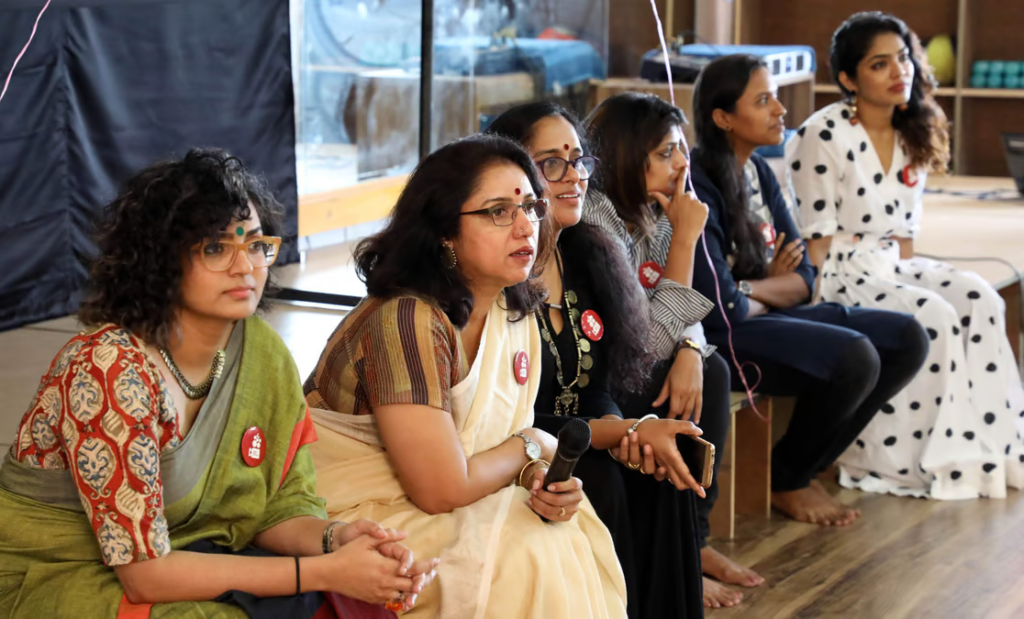Introduction: The Shocking Revelations in Mollywood
On August 19, 2024, the Malayalam film industry, known as Mollywood, faced a seismic shift as the Hema Committee Report was released. This extensive investigation, led by Hema Lakshmi, has revealed a distressing culture of systemic sexual harassment entrenched within the industry. The report details pervasive abuse facilitated by an all-male power structure, underscoring the urgent need for reform.

Timeline of Key Events
Formation and Investigation:
- February 2023: In response to rising allegations of sexual harassment, the Kerala government establishes the Hema Committee. The committee is chaired by renowned women’s rights activist, Hema Lakshmi, with a mandate to investigate the claims and recommend necessary reforms.
- June 2023: The committee begins its detailed investigation. Interviews are conducted with industry professionals, survivors, and various stakeholders to gather comprehensive insights into the allegations.
- January 2024: After months of meticulous investigation, the Hema Committee finalizes its report. The findings reveal a complex network of abuse and systemic issues within Mollywood.
- August 19, 2024: The report is made public, unveiling disturbing details about the widespread sexual harassment and the power dynamics that enable such misconduct.
Findings of the Hema Committee Report
The Hema Committee Report presents an exhaustive analysis of the systemic sexual harassment present in Mollywood. The findings highlight several key issues:
1. Male Dominance and Power Imbalance:
The report reveals a “power group system” dominated by influential male figures. This system not only perpetuates a culture of harassment but also silences victims through intimidation and coercion. The power imbalance is significant, with a few individuals holding disproportionate control over key aspects of the industry.
2. Inadequate Complaint Mechanisms:
One of the most alarming findings is the lack of effective and independent mechanisms for reporting harassment. Victims have reported that their complaints are often ignored or inadequately addressed, leading to a culture where abusers operate with impunity.
3. Documented Cases of Abuse:
The report provides detailed accounts of various abuse cases, including coercion, blacklisting of victims, and manipulation. These instances illustrate the systemic nature of the problem, highlighting the need for substantial reforms.
Expert Opinions: Insights from Key Figures
Dr. Maya Krishnan, Gender Studies Expert:
“The Hema Committee Report is a crucial step towards addressing the deep-seated issues in Mollywood. The findings reflect a pervasive culture of abuse that demands immediate action from both industry leaders and policymakers.”
Ravi Kumar, Human Rights Advocate:
“This report underscores the urgent need for structural changes within the industry. The recommendations provided are vital for creating a safer and more equitable environment for everyone involved.”
Neha Sharma, Film Critic:
“The revelations are shocking yet necessary for fostering meaningful change. The industry must now confront these issues and implement the recommended reforms to ensure justice and safety for all.”
Reactions and Implications for Mollywood
Industry Response:
The release of the Hema Committee Report has prompted a wide range of reactions from within Mollywood. Prominent figures and organizations have expressed shock and dismay, with many calling for immediate action to address the systemic issues uncovered. Industry leaders are now faced with the challenge of implementing the report’s recommendations effectively.
Victims’ Perspectives:
For many survivors, the report represents a long-overdue acknowledgment of their experiences. The validation provided by the report offers hope for justice and systemic change. Victims have shared their relief and optimism as the industry begins to grapple with the findings.
Proposed Reforms and Next Steps
1. Establishment of Independent Complaint Mechanisms:
The report advocates for the creation of independent bodies to handle harassment complaints. These mechanisms must ensure confidentiality, fairness, and prompt action to support victims and hold perpetrators accountable.
2. Industry-Wide Training and Awareness Programs:
Training programs focused on sexual harassment and respectful workplace practices are essential. These programs should be mandatory for all industry stakeholders to foster a culture of respect and understanding.
3. Structural Changes in Industry Power Dynamics:
Reforming the power structures within Mollywood is crucial to preventing abuse. Reducing the concentration of authority and promoting transparency will help mitigate the risk of misconduct.
Latest Developments: Post-Report Actions
August 21, 2024: Following the report’s release, the Kerala government has announced the formation of a task force to oversee the implementation of the Hema Committee’s recommendations. This task force will collaborate with industry leaders and advocacy groups to ensure that the proposed reforms are executed effectively.
Conclusion: A Turning Point for Mollywood
The Hema Committee Report represents a pivotal moment for Mollywood. As the industry confronts the revelations, it is essential that meaningful reforms are enacted to address the systemic issues of sexual harassment. The combined efforts of industry leaders, government bodies, and advocacy organizations will determine the future of Mollywood and its commitment to creating a safer, more equitable environment.
For Regular News and Updates Follow – Sentinel eGazette
Additional Resources and Links
FAQs
Q1: What prompted the formation of the Hema Committee?
The Hema Committee was established in February 2023 by the Kerala government in response to increasing allegations of systemic sexual harassment within Mollywood.
Q2: Who is Hema Lakshmi, and what role did she play?
Hema Lakshmi is a renowned women’s rights activist and the chairperson of the Hema Committee. She led the investigation into the sexual harassment allegations in Mollywood.
Q3: What are the key findings of the Hema Committee Report?
The report revealed a pervasive culture of harassment within Mollywood, dominated by an all-male power structure. It highlighted inadequate complaint mechanisms and detailed cases of abuse.
Q4: What reforms are recommended by the Hema Committee?
The committee recommends establishing independent complaint mechanisms, mandatory training programs, and restructuring industry power dynamics to prevent harassment.
Q5: How has the industry responded to the report?
The response has been mixed, with some industry leaders expressing shock and calling for action, while others are already working on implementing the recommended reforms.